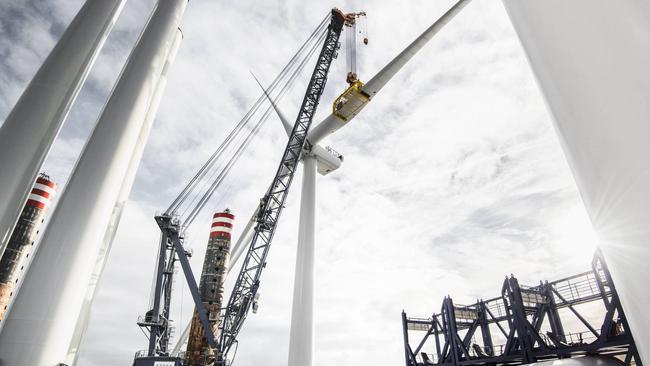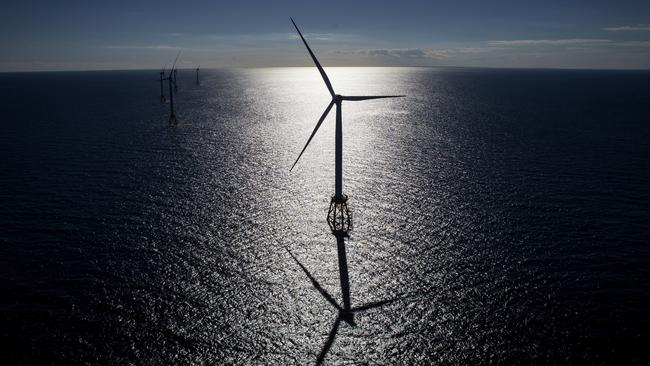Time for companies to come clean on their climate risks

Now one of Bloomberg’s signature efforts – to apply that logic to one of the most dangerous and vexing problems that has ever faced humanity – is poised to be adopted by governments and regulators around the world.
That problem, of course, is climate change.
But the approach championed by Bloomberg and his colleagues (including Mark Carney, the former governor of the Bank of England, and current adviser to British Prime Minister Boris Johnson on climate finance), is not about legislation that forces companies or governments to reduce their greenhouse emissions.
Rather, it’s about encouraging them to publicly disclose how climate change is likely to affect them financially.
This concept is known as “climate risk”. Instead of focusing on a company’s effects on the climate, this concept flips the mirror and asks how climate change will impact the company.
And what some companies see in the mirror is not pretty.
For instance, we know that climate change is causing and will continue to cause sea level rise, more frequent and more severe hurricanes and cyclones, widespread and catastrophic bushfires, deadly heatwaves, a wild whipsaw between droughts and severe floods – to name but a few.
These events take a massive human and social toll. But they also take a financial toll, and the reality is that the costs of climate change are not evenly spread.
A property owner whose assets – skyscrapers, airports, ports, roads, railways, etc – happen to be located in low-lying areas or where storms increase will see much steeper losses than another property owner whose assets are not in such vulnerable locations.
Many Australian super funds own large property portfolios. Wouldn’t you want to know whether your super fund has properly factored in climate risk in deciding how to invest your retirement savings?
A similar point can be made about companies.
Those linked to high emissions will be affected differently than low-emissions competitors as the world transitions to a low-carbon future.
At a broader scale, a country whose economy relies on sectors that are particularly vulnerable to climate change and policy responses to it might also suffer greater economic hits, which could impact that nation’s prosperity.
These industries include agriculture and fossil fuel mining and exports. Sound familiar?
You might think that people investing in the bonds issued by such a country would also want to know whether that country had properly factored those risks into the price of bonds, and how it planned to manage those risks.
Indeed, a lawsuit against the Commonwealth of Australia over alleged failure to make these kinds of disclosures is already on foot. An earlier lawsuit sought to force a major super fund to disclose that type of information, as well.

Those calling for more and better disclosures of climate risk say they need that information in order to weigh risks when making investments.
Little wonder, then, that we are now seeing a very rapid move from major governments and regulators to pass laws that force companies to make these disclosures.
Like Bloomberg says, they understand that in order to manage climate risk, they need to be able to measure it.
The speed of this change can’t be emphasised enough.
Just a couple of years ago, such disclosures were still viewed with curiosity as a voluntary step that companies might take, often as part of their “corporate social responsibility” measures. Now, making these disclosures is becoming mandatory. And, of course, where disclosures are made, there are legal consequences for making false, misleading or deceptive comments to the market (the rules on that differ by jurisdiction).
In recent days, the members of the G-7 group (Canada, France, Germany, Italy, Japan, Britain and the US) announced their intention to mandate the disclosure method recommended by the Taskforce on Climate-related Financial Disclosures, or TCFD.
Bloomberg and Carney were instrumental in leading that taskforce, and producing the method that now bears its name.
China has announced that it is likely to join the effort to mandate climate disclosures. That would see mandatory disclosures in virtually all of the world’s major markets.
These announcements come ahead of the international climate negotiations in Glasgow this November. Britain is leading the negotiations this year, and has made climate disclosures one of its top priorities.
What does this mean for Australia?
Our financial regulators have already made clear that they expect many entities to disclose their climate risks. But this isn’t the same as a requirement set down in legislation.
Once all our major trading partners are requiring TCFD disclosures, it will be very difficult for Australia not to follow suit.
Australian companies are likely to be asked to provide those disclosures to any investors (including banks) from places where those disclosures are required.
In other words, it might be difficult, or impossible, to access overseas financing without providing climate risk information in the same format, and of the same quality, as what the laws in those places demand.
There are already calls for Australia to introduce laws requiring climate disclosures. Given the global trends, there is little advantage to Australia holding out.
As a middle-sized economy, we are not going to be able to resist this trend.
Like climate change itself, the movement towards mandatory climate risk disclosure is already happening and the quicker we respond the better.
And we shouldn’t lose sight of the bigger goal, which is to fend off the worst impacts of catastrophic climate change, and the devastation that it will wreak on all species, including humans, many of whom stand to lose their lives or at least their quality of life.
Ilona Millar is Baker McKenzie’s global head of climate change and Sharona Coutts is an associate with Baker McKenzie.







“If you can’t measure it, you can’t manage it,” the former mayor of New York City, Michael Bloomberg, is fond of saying.